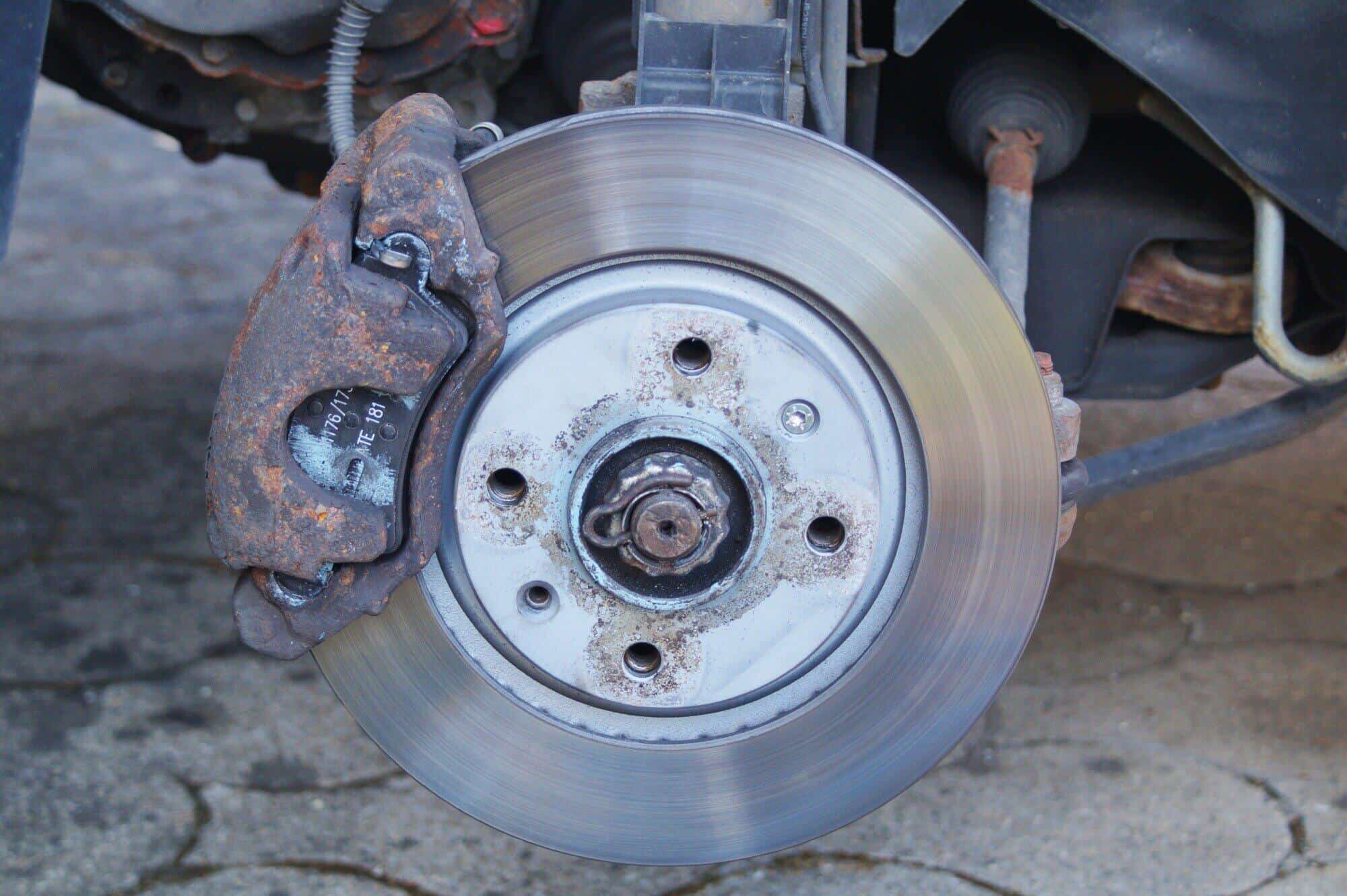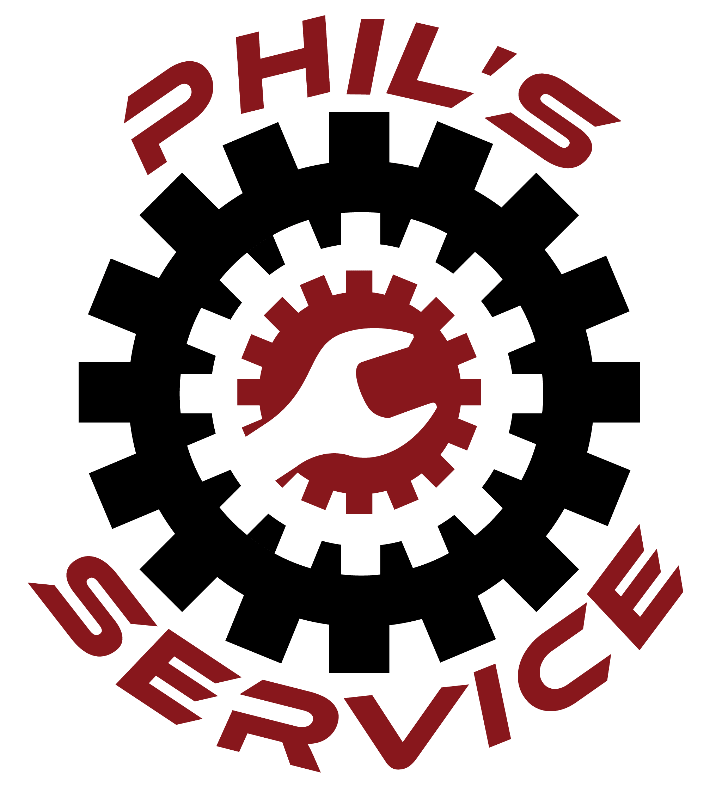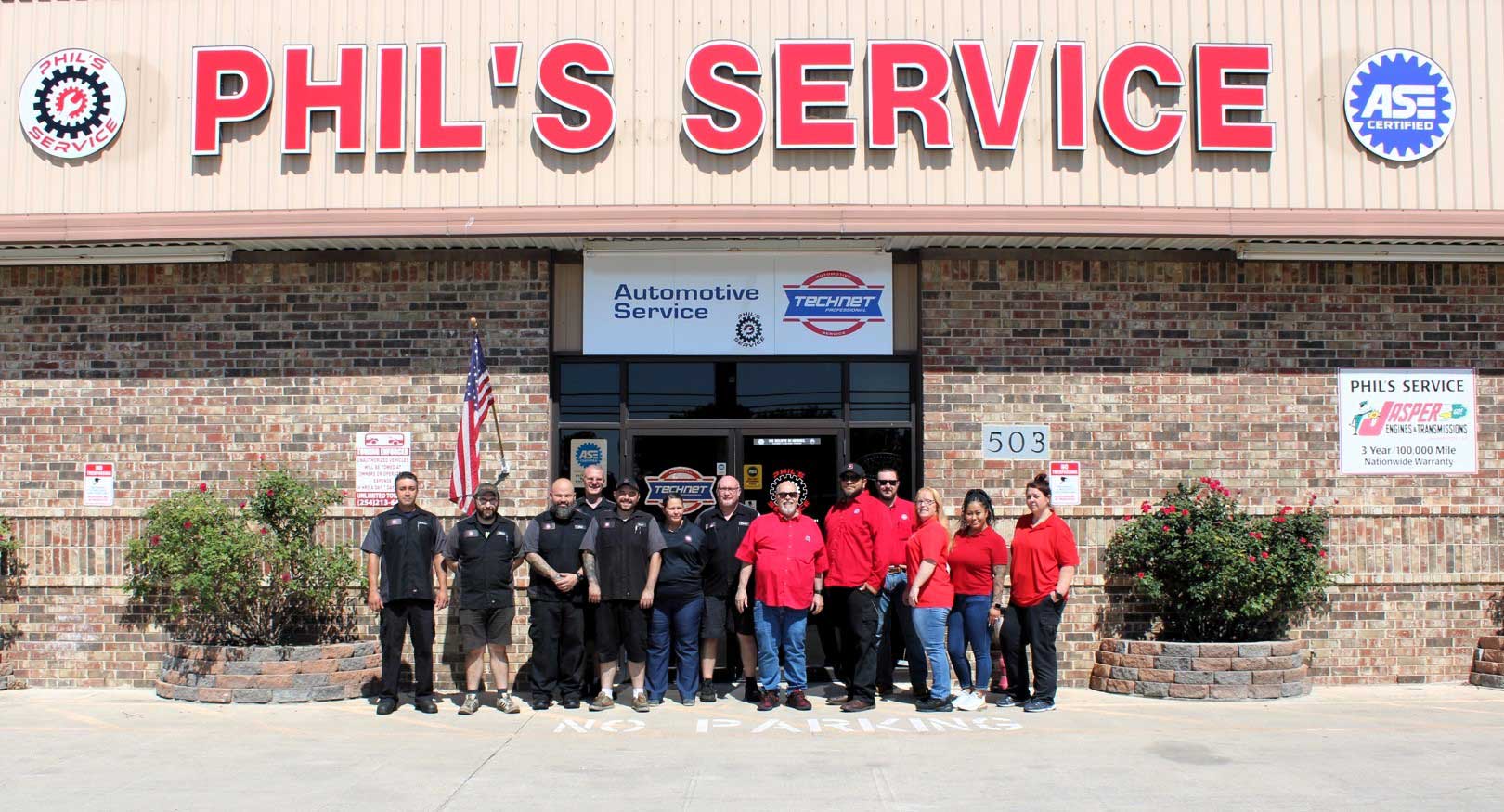Why Are My Brakes Making a Grinding Noise?
You're cruising down the highway, windows down, enjoying your favorite playlist. Everything feels perfect - until you hit the brakes. Suddenly, a loud, unsettling grinding noise shatters the calm, making you wince and wonder, What's going on with my car?
Whether it's a subtle grating or a sound that feels like nails on a chalkboard, car brake issues are not something to ignore. This noise could signal anything from worn brake pads to a more serious mechanical problem.
We can help. Read on to find out why brakes are making a grinding noise.
Diagnosing Brake Sounds: Worn Brake Pads
Over time, the friction material on brake pads naturally wears down due to the consistent pressure and heat generated during braking. Once this material is depleted, the metal backing plate of the brake pad comes into direct contact with the brake rotor. This metal-on-metal contact produces a harsh grinding sound and can significantly damage the rotor's surface.
Ignoring worn brake pads can lead to costly repairs. The grinding noise indicates that your braking system is compromised, reducing its efficiency and increasing your stopping distance.
Driving with metal-to-metal contact can cause deep grooves or warping on the rotors, which might require replacement instead of a simple resurfacing. This can dramatically increase repair costs.
Debris Between Rotor and Pad
Small stones, dirt, or other road debris can find their way into the braking system, especially if you regularly drive your car on gravel roads or through muddy conditions. When this debris gets caught, it creates a scraping or grinding sound as the rotor and pad press together during braking.
While the noise might seem alarming, debris in the braking system doesn't always indicate severe damage. However, ignoring it can lead to potential car brake issues.
it's essential to have your brakes inspected and cleaned as part of your regular maintenance. A professional mechanic can safely remove the debris and check for any signs of damage to the pads or rotors.
Faulty or Misaligned Brake Components
Each part of the brake assembly, including:
- Calipers
- Pads
- Rotors
- Shims
must work in perfect alignment for optimal performance. If any of these components are damaged, installed incorrectly, or become misaligned, they can produce grinding sounds when you apply the brakes.
For example, a misaligned caliper can cause the brake pad to press unevenly against the rotor, leading to uneven wear and grinding noises.
Loose or damaged shims may shift or fall out of place, allowing metal-to-metal contact between brake parts. Faulty hardware, such as worn-out caliper pins or brackets, can also cause vibration and grinding as the components fail to stay securely in place.
Low-Quality or Worn-Out Brake Parts
Budget-friendly brake pads, rotors, or other components may save you money upfront but often lack the durability and performance of high-quality parts. Inferior materials tend to wear out faster, and in some cases, may not provide adequate friction.
To avoid these fixing brake problems, always invest in high-quality, reliable brake components. If you hear grinding noises and suspect that your brake components are of inferior quality or nearing the end of their useful life, have them replaced immediately.
Lubrication Issues
Proper lubrication is essential for certain brake components, such as the caliper pins and the backing plates of the brake pads. Without adequate lubrication, these parts can stick, seize, or rub against each other, creating friction that results in grinding or squeaking sounds.
For instance, caliper pins are responsible for guiding the brake pads evenly against the rotor. If these pins dry out or become corroded, they may cause uneven pressure, leading to grinding or vibration during braking.
The metal backing plate of the brake pad requires lubrication where it meets the caliper to ensure smooth operation. A lack of lubrication in these areas can cause the metal surfaces to grind against one another.
Overheated Brakes
Overheated brakes, a condition known as "brake fade," can cause grinding noises and significantly reduce braking performance. This occurs when the brake components, including the pads and rotors, become excessively hot during prolonged or heavy use. Scenarios such as:
- Driving downhill for an extended period
- Towing heavy loads
- Frequent hard braking in stop-and-go traffic
Are common culprits of overheated brakes. To address overheated brakes, allow your braking system to cool before driving further.
Avoid sudden, aggressive braking when possible. Use engine braking to reduce strain on the brakes in steep or downhill conditions.
Brake System Contamination: Grinding Brake Solutions
Brake components require a clean surface to function effectively. If substances such as oil, grease, dirt, or brake fluid find their way onto these components, they can compromise the braking system's performance. Contaminants create an uneven surface or interfere with the friction needed for smooth braking, often leading to grinding or squealing sounds.
Oil or grease may seep into the brake system during service or from a nearby component, such as a leaking axle seal or caliper. Brake fluid leaks are particularly concerning, as they not only cause noise but can also significantly reduce braking power, posing a safety risk.
Issues with Drum Brakes
Unlike disc brakes, drum brakes use brake shoes that press against the inside of a drum to slow the vehicle. Over time, various problems within this system can lead to grinding sounds and reduced braking efficiency.
One of the most common causes of grinding in drum brakes is worn brake shoes. Similar to brake pads in disc systems, the friction material on brake shoes wears down with use.
If the shoes are not aligned correctly or the self-adjuster mechanism is faulty, the shoes may press unevenly against the drum, causing noise and uneven wear. A stuck or seized brake cylinder within the drum system can also result in grinding as it prevents the brake shoes from moving smoothly.
Brakes Are Making a Grinding Noise? Watch Out
Now that you know why your brakes are making a grinding noise, you can better protect your vehicle.
Are you looking for some extra help with brake noise troubleshooting? At Phil's Service, we combine exceptional expertise, affordable pricing, and unmatched service to keep your car safe on the road.
Our ASE-certified technicians specialize in brake repair, offering lifetime brakes for just $189.73 and thorough inspections to ensure your peace of mind.
Call today and experience Killeen's most trusted auto care!
Wondering why are my brakes making a grinding noise? Schedule an appointment at Phil's Service and ask about their brake repair services.
You're cruising down the highway, windows down, enjoying your favorite playlist. Everything feels perfect - until you hit the brakes. Suddenly, a loud, unsettling grinding noise shatters the calm, making you wince and wonder, What's going on with my car?
Whether it's a subtle grating or a sound that feels like nails on a chalkboard, car brake issues are not something to ignore. This noise could signal anything from worn brake pads to a more serious mechanical problem.
We can help. Read on to find out why brakes are making a grinding noise.
Diagnosing Brake Sounds: Worn Brake Pads
Over time, the friction material on brake pads naturally wears down due to the consistent pressure and heat generated during braking. Once this material is depleted, the metal backing plate of the brake pad comes into direct contact with the brake rotor. This metal-on-metal contact produces a harsh grinding sound and can significantly damage the rotor's surface.
Ignoring worn brake pads can lead to costly repairs. The grinding noise indicates that your braking system is compromised, reducing its efficiency and increasing your stopping distance.
Driving with metal-to-metal contact can cause deep grooves or warping on the rotors, which might require replacement instead of a simple resurfacing. This can dramatically increase repair costs.
Debris Between Rotor and Pad
Small stones, dirt, or other road debris can find their way into the braking system, especially if you regularly drive your car on gravel roads or through muddy conditions. When this debris gets caught, it creates a scraping or grinding sound as the rotor and pad press together during braking.
While the noise might seem alarming, debris in the braking system doesn't always indicate severe damage. However, ignoring it can lead to potential car brake issues.
it's essential to have your brakes inspected and cleaned as part of your regular maintenance. A professional mechanic can safely remove the debris and check for any signs of damage to the pads or rotors.
Faulty or Misaligned Brake Components
Each part of the brake assembly, including:
- Calipers
- Pads
- Rotors
- Shims
must work in perfect alignment for optimal performance. If any of these components are damaged, installed incorrectly, or become misaligned, they can produce grinding sounds when you apply the brakes.
For example, a misaligned caliper can cause the brake pad to press unevenly against the rotor, leading to uneven wear and grinding noises.
Loose or damaged shims may shift or fall out of place, allowing metal-to-metal contact between brake parts. Faulty hardware, such as worn-out caliper pins or brackets, can also cause vibration and grinding as the components fail to stay securely in place.
Low-Quality or Worn-Out Brake Parts
Budget-friendly brake pads, rotors, or other components may save you money upfront but often lack the durability and performance of high-quality parts. Inferior materials tend to wear out faster, and in some cases, may not provide adequate friction.
To avoid these fixing brake problems, always invest in high-quality, reliable brake components. If you hear grinding noises and suspect that your brake components are of inferior quality or nearing the end of their useful life, have them replaced immediately.
Lubrication Issues
Proper lubrication is essential for certain brake components, such as the caliper pins and the backing plates of the brake pads. Without adequate lubrication, these parts can stick, seize, or rub against each other, creating friction that results in grinding or squeaking sounds.
For instance, caliper pins are responsible for guiding the brake pads evenly against the rotor. If these pins dry out or become corroded, they may cause uneven pressure, leading to grinding or vibration during braking.
The metal backing plate of the brake pad requires lubrication where it meets the caliper to ensure smooth operation. A lack of lubrication in these areas can cause the metal surfaces to grind against one another.
Overheated Brakes
Overheated brakes, a condition known as "brake fade," can cause grinding noises and significantly reduce braking performance. This occurs when the brake components, including the pads and rotors, become excessively hot during prolonged or heavy use. Scenarios such as:
- Driving downhill for an extended period
- Towing heavy loads
- Frequent hard braking in stop-and-go traffic
Are common culprits of overheated brakes. To address overheated brakes, allow your braking system to cool before driving further.
Avoid sudden, aggressive braking when possible. Use engine braking to reduce strain on the brakes in steep or downhill conditions.
Brake System Contamination: Grinding Brake Solutions
Brake components require a clean surface to function effectively. If substances such as oil, grease, dirt, or brake fluid find their way onto these components, they can compromise the braking system's performance. Contaminants create an uneven surface or interfere with the friction needed for smooth braking, often leading to grinding or squealing sounds.
Oil or grease may seep into the brake system during service or from a nearby component, such as a leaking axle seal or caliper. Brake fluid leaks are particularly concerning, as they not only cause noise but can also significantly reduce braking power, posing a safety risk.
Issues with Drum Brakes
Unlike disc brakes, drum brakes use brake shoes that press against the inside of a drum to slow the vehicle. Over time, various problems within this system can lead to grinding sounds and reduced braking efficiency.
One of the most common causes of grinding in drum brakes is worn brake shoes. Similar to brake pads in disc systems, the friction material on brake shoes wears down with use.
If the shoes are not aligned correctly or the self-adjuster mechanism is faulty, the shoes may press unevenly against the drum, causing noise and uneven wear. A stuck or seized brake cylinder within the drum system can also result in grinding as it prevents the brake shoes from moving smoothly.
Brakes Are Making a Grinding Noise? Watch Out
Now that you know why your brakes are making a grinding noise, you can better protect your vehicle.
Are you looking for some extra help with brake noise troubleshooting? At Phil's Service, we combine exceptional expertise, affordable pricing, and unmatched service to keep your car safe on the road.
Our ASE-certified technicians specialize in brake repair, offering lifetime brakes for just $189.73 and thorough inspections to ensure your peace of mind.
Call today and experience Killeen's most trusted auto care!


